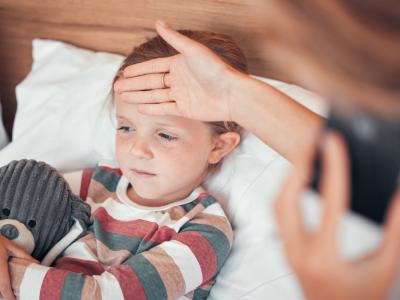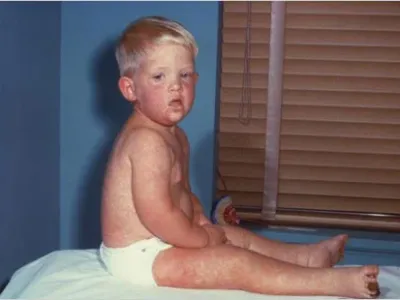Nov 19, 2007 (CIDRAP News) – A World Health Organization (WHO) working group will meet in Geneva over the next 4 days to try to solve an impasse over how countries share their H5N1 avian influenza virus samples, a disagreement that pits developing countries' demand for affordable vaccines against the global need to monitor virus changes and develop pandemic vaccines.
The rift over sharing of H5N1 samples began last December when Indonesia stopped sending H5N1 isolates to the WHO as a protest against the cost of commercial vaccines developed from the strains. Indonesia has said it owns the H5N1 samples found on its soil and intends to use them to develop a vaccine to protect its own population.
In May Indonesia promised to resume sending H5N1 virus samples, but it has sent only a few. The government sent three samples in May, but they did not contain any live viruses, according to previous reports. Gregory Hartl, a WHO spokesman, recently told CIDRAP News that the last samples Indonesia sent were from patients from Bali in August.
Other countries, such as China and Vietnam, have been slow to share H5N1 samples or have encountered procedural difficulties in sending them out. However, Chinese agriculture official Niu Dun said the country recently sent 23 H5N1 samples to the WHO, according to a Nov 13 report from Xinhua, China's state news agency.
At the Geneva meeting, members of the WHO's working group on virus-sharing will continue work on resolutions to ensure equitable H5N1 vaccine access that were outlined in May at the World Health Assembly, the annual meeting of WHO member countries. In August the same group, composed of representatives from 23 nations, met in Singapore, where they produced three documents—two that address H5N1 sample sharing and handling and one on a virus-sharing oversight mechanism, according to a previous CIDRAP News report.
David Heymann, the WHO's assistant director-general for communicable diseases, said in the earlier report that at the November meeting the group would finalize the documents, review and debate other issues, and forward a report to the WHO executive board. The documents and other agenda items are available on the working group's Web site.
Several news developments and publications relating to the virus-sharing issue have cropped up in the past few weeks in advance of the WHO meeting.
Indonesia asks the WHO to return samples
Indonesia asked the WHO to return 58 of its H5N1 samples, according to a Nov 9 article in the Jakarta Post. Health minister Siti Fadilah Supari said Indonesia needed the virus samples back because it did not have a stockpile of seed viruses needed to develop its own vaccines, the report said. Supari claimed that international regulations require source countries to give up all their samples.
Supari said Indonesia asked the WHO to return the viruses in August, but had not received a response, the Post report said. "We keep asking (the WHO) to return the samples because they belong to us. This is for the sake of our country's sovereignty," she told the newspaper.
However, Hartl told CIDRAP News that the WHO responded to a letter from Supari, but he gave no details on the response.
Organization emerges as Indonesia's adviser
Meanwhile, the Canadian Press revealed yesterday that the Third World Network (TWN), a nongovernmental organization that does advocacy work for developing countries, has been advising Indonesia in its dispute with the WHO over the H5N1 samples.
The organization, based in Malaysia, issued a statement on Nov 15 charging that H5N1 viruses have been shared outside the WHO network with vaccine developers without the permission of the source countries, which it says violates WHO guidance issued in 2005.
"As a result, several developing countries have slowed the sharing of viruses," the TWN said.
The statement urges developing countries to sign a document that it will present at the WHO intergovernmental meeting this week. The document claims that a "WHO designated laboratory," along with other companies and institutions, is seeking patents on viruses, parts of viruses, and products, such as vaccines, made from the H5N1 viruses countries have shared.
"These companies and institutions see this as an occasion to obtain patents and extra profits, and there has been a rapid increase in patenting activity related to avian influenza," the TWN document states.
The statement urges the WHO working group to establish an equitable "framework" for distributing vaccines, diagnostics, and other medical products in the event of a pandemic. It says the framework should recognize nations' "sovereignty" over biological resources and should obligate developed countries and the private sector to share H5N1-related technology with developing countries and provide resources to build local capacities for producing vaccine and other pandemic-related medical supplies.
Are viruses really biological resources?
David Fidler, an international law professor at Indiana University in Bloomington, wrote about some of the legal aspects of the virus-sharing issue in the January early online issue of Emerging Infectious Diseases.
Fidler wrote that Indonesia has asserted that pathogenic virus samples are covered by the Convention on Biological Diversity, an international treaty adopted in 1992 to guide national strategies for conserving biological diversity. However, influenza viruses aren't the kind of biological resource that the convention was meant to protect, he maintained.
"These viruses invaded Indonesia; their presence and spread owes nothing to the investment, nurturing, and utilization of the Indonesian government or people," Fidler wrote. "Rather than seeking to conserve this virus, the strategy is to contain and ultimately eradicate it."
Indonesia's virus-sharing protest has exposed ambiguity in the 2005 International Health Regulations, which took effect in July, he wrote. Though the new regulations don't specifically require member countries to share samples of biological materials, they recognize a country's duty to share samples for surveillance purposes, Fidler added.
Europeans worry about fallout
In a briefing released in advance of the WHO meeting, the European Centre for Disease Prevention and Control (ECDC) said the focus on the virus-sharing issue could be taking a serious toll on the global health community.
Though the issues are fundamentally important to the global health community, "a lack of resolution could deflect many key staff from other important work, such as improving global pandemic preparedness," the ECDC said.
The current virus-sharing system, though not perfect, has worked extremely well over the past several years, particularly during the SARS crisis, the ECDC said. "Care needs to be taken to ensure that further regulation does not compromise function," the report says, adding that a requirement for material transfer agreements or permission from source countries could seriously delay the development of new vaccines.
See also:
WHO intergovernmental meeting on pandemic influenza preparedness Web site
http://www.who.int/gb/pip/
Aug 9 CIDRAP News story "WHO: Indonesia's withholding of viruses endangers world"
Third World Network Web site
http://www.twnside.org.sg/
Nov 15 TWN statement on virus-sharing
Fidler DP. Influenza virus samples, international law, and global health diplomacy. Emerg Infect Dis 2008 Jan;14(1) [Full text]
Oct 17 CIDRAP News story "WHO report explores patent issues concerning flu viruses"


















